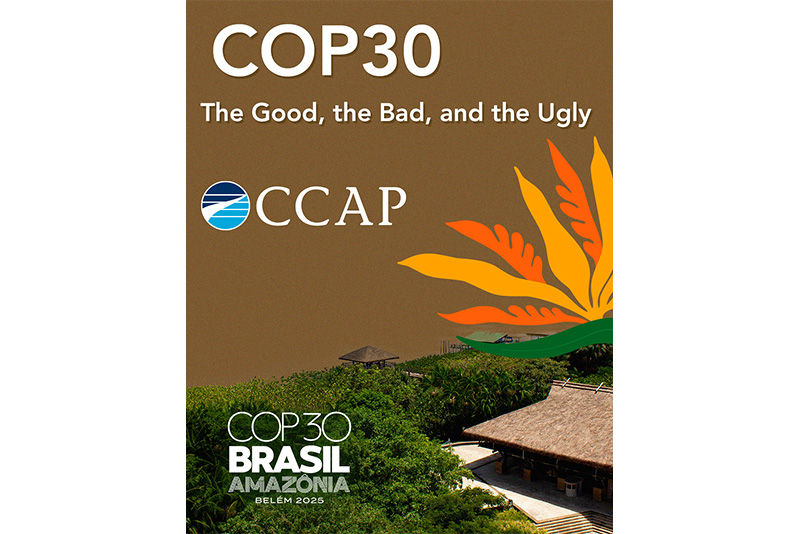Improving Fuel Economy and Reducing Vehicle Emissions
- CCAP

- Oct 10, 2012
- 3 min read
As nationally appropriate mitigation actions (NAMAs) are proposed by developing countries to significantly reduce greenhouse gas (GHG) emissions and advance sustainable development within CCAP’s MAIN program, CCAP is examining policy options and global success stories that will provide insight and stimulate more discussion. With populations and car ownership rates continuously growing, transportation emissions account for 23 percent of GHG emissions worldwide, making it a particularly important sector for climate change mitigation actions. According to the World Resources Institute, the transport sector has been named the fastest growing GHG-emitting sector in the world. And, as the growth of vehicle use outpaces improvements in vehicle fuel efficiency, GHG emissions and air pollution are continuously growing. CCAP has been looking into the feasibility of mitigation actions in multiple sectors – including transportation – within Latin America and Asia.
Latin America
Recent studies have shown GHG emissions from transportation in Latin American have doubled from 1980 to 2007. Although economic growth is the underlying factor, a study by the World Bank suggests the growth of transport emissions is sometimes due to a rise in transportation energy intensity of the economy. In countries where growth of energy consumption in the transport sector outpaces GDP growth, the study recommends regulatory policies. In countries where basic economic growth alone is the driver of transport emissions, fiscal policy instruments are recommended. In either case, it is clear that auto ownership and freight movement are projected to increase as Latin America develops economically, so vehicle efficiency policies will be necessary to encourage low-carbon development and reduce air pollution.

Asia
The U.S. Energy Information Administration projects non-OECD Asia will account for 59 percent of the increase in global transportation demand by 2035. To ensure this demand is met as sustainably as possible, implementing more efficient transportation measures – including transit infrastructure and technological improvements – should be a priority. Fuel consumption from automobiles in Asian countries is expected to increase more than three and a half times from 2005 to 2035, according to a Clean Air Initiative for Asian Cities study. In India, transportation energy use is expected to increase by 5.5 percent annually. Without appropriate actions, this increased fuel use will have a significant effect on roadway congestion, local air pollution, quality of life and GHG emissions.

As developing countries are faced with increasing oil use, air pollution and traffic congestion, transportation-specific NAMAs are becoming a viable option to improve vehicle fuel efficiency and reduce emissions. These NAMAs are wide-ranging and can include measures to enhance travel efficiency, reduce fuel carbon intensity and improve vehicle fuel economy. The following examples outline four types of vehicle efficiency policy tools:
Regulations – Fuel economy or GHG emissions standards for manufacturers of vehicles – based on fleet averages or bins by size, footprint or weight class – can be use as a regulatory tool to increase vehicle efficiency. Requirements to purchase vehicles using certain technology and meeting minimum standards are generally applied to fleets, not individuals. Additionally, many countries place importation restrictions on used vehicles. In the past, U.S. fuel economy standards have led to technological innovations, bringing about large-scale economic benefits as well. Other benefits include improved respiratory health from reduced vehicle emissions and consumer savings from decreased fuel costs.
Fiscal Incentives – Fuel taxes are often used as a method to raise revenues for road maintenance and operations, but they can also be used as a method to reduce consumer demand for automobile travel. Further incentivizing non-automobile travel, fuel tax revenues can fund alternative transportation options. Other fiscal incentives to reduce transportation demand include differential tariffs, parking pricing, registration fees or rebates based on fuel economy or emissions.
Investments – Funding for advanced technology research and development can be used as a policy tool to increase vehicle efficiency. Investments may go toward developing more efficient vehicles, alternative fuel types, or planning for more efficient metropolitan-wide transportation systems. Construction of specialized infrastructure, such as electric vehicle charging networks, will increase consumer demand.
Awareness programs – Fuel economy labeling that detail the fuel efficiency are required on all new vehicles so that customers can account for vehicle efficiency and fuel costs in their purchasing decisions. Because fuel economy labeling encourages consumers to purchase more efficient vehicles, this encourages technological innovation, which in turn leads to economic and employment growth. Like fuel economy regulations, benefits of labeling include technological innovation and reduced emissions.
As other developing countries continue to explore NAMA opportunities and possibilities, CCAP will provide a look into global policy success stories related to the transportation sector. Stay tuned for more about actions in Hong Kong, Chile and the United States.





Comments